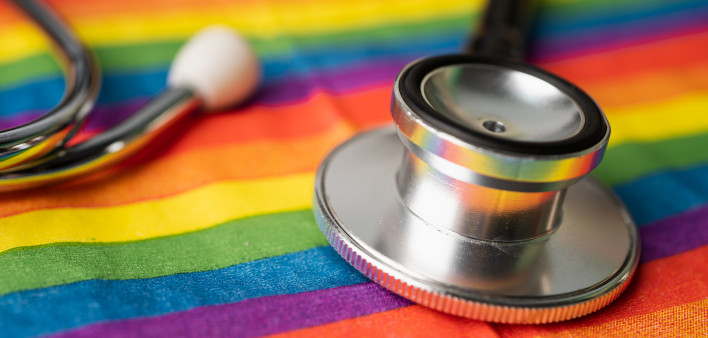More than half of LGBTQ Americans identify as bi+, yet many continue to face stigmatization and erasure from people both in and outside of the LGBTQ community. This stigmatization leads to overwhelming health disparities in the bi+ community. Belle Silverman, president of the Bisexual Resource Center, who uses she/her pronouns, says some of this antagonization comes from our society’s obsession with the binary.
“This idea that a person can identify as someone who is attracted romantically, sexually or otherwise to a broad range of people across genders has not been a comfortable concept for a long time,” she said.
Stigma and bi-erasure exist everywhere, even in health care settings. This #BiVisibilityDay, we’re calling on health care professionals to stop assuming and start creating safe spaces for their bi+ patients to be themselves and improve their health. https://t.co/9zO7mrxAVo pic.twitter.com/0AseV31nbb
— AIDS United (@AIDS_United) September 23, 2021
In March, AIDS United member Julio Fonseca interviewed Gina Brown, a member of the Positive Women’s Network and a bisexual woman living with HIV in an Instagram live. Brown, who uses she/her pronouns, said, “There is this conversation in the LGT community that that B is silent or greedy. They just want everything. And it’s not that. So, believe us and include us in the conversation. Make sure we are accepted members of our community.”
Ignoring or silencing bi+ voices trickles into medical education and into clinical settings as well. When even our own physicians or therapists are not educated on the bi+ community, it means bi+ people do not feel safe or comfortable being open with their health care providers.
“This constant erasure can impact somebody’s ability to be out with their health care provider and be out with their partners and find good resources, whether it’s about their particular health issues — HIV/AIDS — or not,” said Silverman.
Lauren Beach, J.D., Ph.D, a researcher in the sexual and gender minority field, researches health equity within the bi+ community. Beach, who uses she and they pronouns, considers a couple of questions when thinking about bi+ people and how they interact with health professionals.
“What are the factors that are making you more or less likely to engage in health care? What’s it like for you to work with providers? What do you wish providers would be doing differently to welcome you?” they said. Then she takes these questions one step further by thinking about the intersections of race, gender identity, ethnicity, class, etc.
Beach also notes that stigma is directly related to increased stress. “When you have higher levels of unmanaged stress in your body that could lead to a variety of effects both mental and physical that then translate into all kinds of bad health effects.”
Moving forward, Brown hopes to see more bi+ specific conferences in order to uplift voices.
Silverman and Beach also hope to see more inclusive health care settings. This starts with health care providers not making assumptions about a person based on their current partner, gender identity or about their expression.
“People don’t know I am bisexual if I don’t bring it up, and it’s really important to me to bring it up because I want other people coming in these spaces to know that we’re out there and we don’t always look the way folks think we’re going to look or act the way folks think we’re going to act,” says Silverman. She also encourages people to start using the word bisexual if they feel safe enough to identify themselves that way to their doctor. Simply using this word can help the doctor understand who you are and what your needs are.
Beach suggests re-educating doctors on how to talk to people about their bodies and sexuality to promote patient-centered care and trust. Providers should be curious about their patients, not denying people’s personhood by ignoring a part of their identity.
“The ones who will do this are going to be the ones to care to begin with,” they said.
The greatest thing any of us can do is to believe someone when they say they are bisexual+. Stop the jokes. Stop the stereotypes. Believe them. As we reflect on Bi Week and how we can uplift bi+ voices, Silverman turns to the joy she feels as a bisexual woman.
“We often talk about how hard it can be to be a bi identify person in a world that is not super bi friendly. I like also to point out that it is really awesome to be bisexual or to be in the bi+ umbrella. It’s a beautiful way to break down your own boundaries and experience life with a little bit more color because you have the opportunity to be attracted to so many different types of folks.”








1 Comment
1 Comment